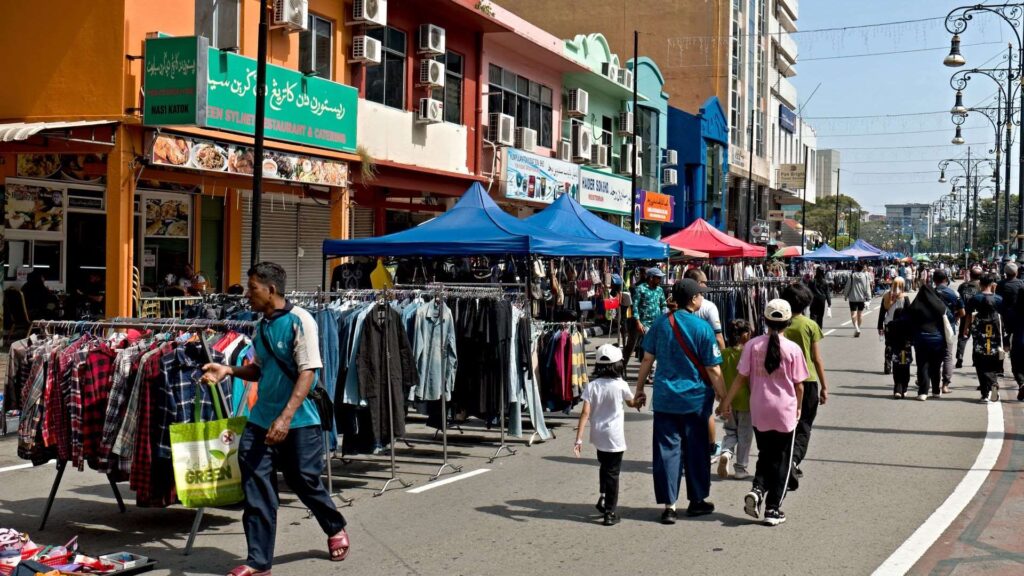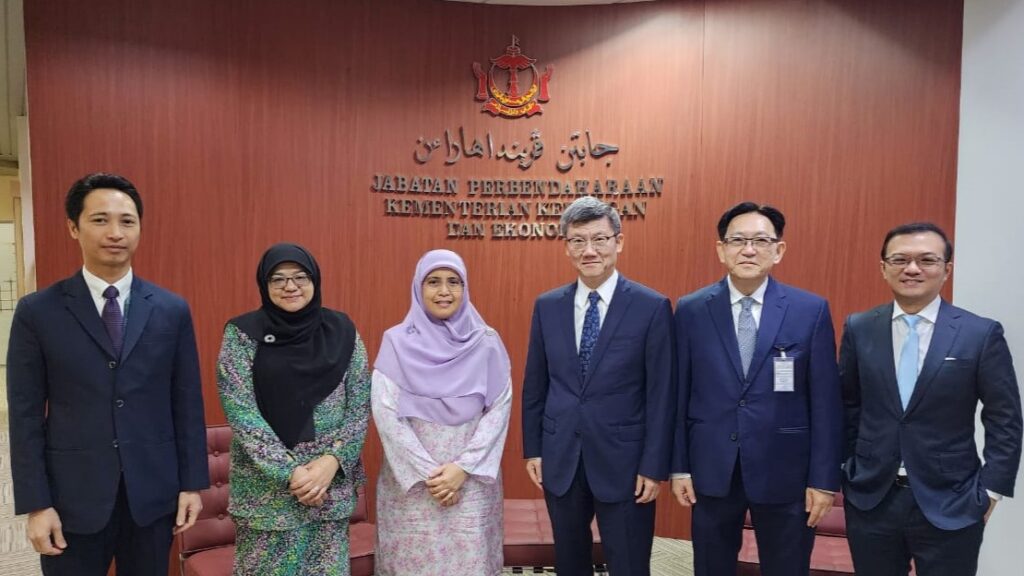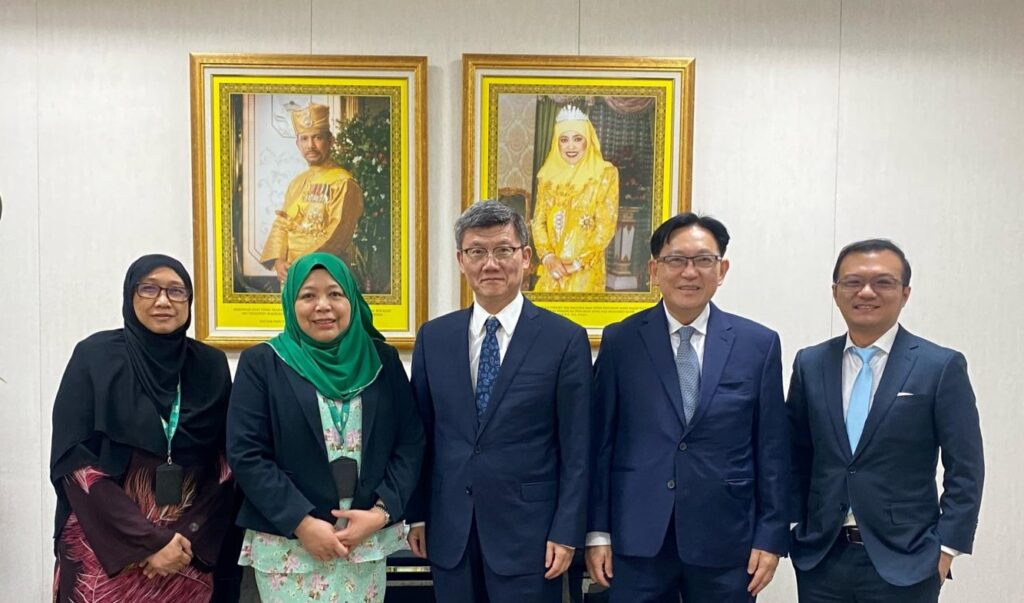
Image: Rostasedlacek / Shutterstock.com
SINGAPORE, December 13, 2023 – Brunei’s economic recovery is underway with the non-oil & gas sector continuing to show positive performance driven by the services sector, reflecting robust activities in the finance and transport subsectors, as post-pandemic recovery gains traction. In contrast, rejuvenation effort in the oil and gas (O&G) sector has proven to be more challenging thus far but is expected to contribute to an improved production in the near future. In the downstream industry, prospects remain positive, with planned diversification into other new products, lending support to growth in the near term. In the longer term, the government remains committed to diversifying the economy toward a sustainable and low-carbon economy.
This preliminary assessment was made by the ASEAN+3 Macroeconomic Research Office (AMRO) after its Annual Consultation Visit to Brunei Darussalam from November 21 to 28, 2023.
The mission was led by AMRO Deputy Group Head and Senior Economist, Anthony Tan. AMRO Director, Kouqing Li, and Chief Economist Hoe Ee Khor also participated in the policy meetings. The discussions mainly focused on recent developments and outlook in the post-pandemic new normal, spillover risks from higher-for-longer global interest rate environment, longer-term development challenges, as well as policy priorities.
Economic developments and outlook
“Growth is expected to come in at 0.2 percent in 2023, before strengthening to 2.4 percent in 2024, led by the non-O&G sector. The robust activities in the agri-food, finance, transportation, and tourism subsectors are expected to offset the slow activities in the upstream O&G production. said Mr. Tan. “The expansion of activities in the downstream oil refining sector will also support growth.”
Headline inflation has decelerated to 0.6 percent in the first seven months of 2023, reflecting lower commodity prices and post-pandemic supply chain normalization. Inflation is estimated at around 1.0 percent, on average, in 2023 and 2024, declining from 3.7 percent in 2022. The balance of risk is tilted to the upside, considering the effects of El Niño, which could lead to higher food prices in the region.
The external position remains strong, with sustained balance of payment (BOP) surplus in 2022. The positive BOP reflects the widening of the current account surplus to 19.6 percent of GDP, driven mainly by the surge in energy prices which offset the lower volume of exports. In 2023, the current account surplus is expected to be sustained, albeit narrowing to 15.3 percent of GDP, given the softer export outlook in both upstream and downstream O&G sectors.
Higher oil revenue has helped restore buffers, with a better-than-expected fiscal surplus of 1.3 percent of GDP in fiscal year 2022. Looking ahead, the overall fiscal position in fiscal year 2023 is estimated to weaken to a deficit of around 9.3 percent of GDP, mainly from lower oil prices compared to last year.
Risks, vulnerabilities and challenges
The risks and challenges confronting Brunei are largely unchanged. A sharp decline in global energy prices and a recession in Brunei’s major trading partners are deemed as tail risks that would derail its growth prospects, strain the external balance and worsen the fiscal position. In the longer term, challenges stem from a potential setback to economic diversification as some domestic growth engines, including the tourism sector, could take longer to recover from the pandemic, as well as risks from climate change transition.
Policy recommendations
Beyond the immediate terms of trade gains, the authorities are encouraged to strengthen sustainability of Brunei’s fiscal position. This would require the development of a strong public financial management system, which would then pave the way for the adoption of credible medium-term fiscal frameworks to provide forward guidance on fiscal policy. The authorities are also encouraged to undertake necessary preparations, including strengthening of capacity, in order to carry out the planned revenue and expenditure reforms.
In the financial sector, it would be prudent to strengthen financial surveillance and risk monitoring, particularly on financial institutions’ cross-border lending and exposures to market risks. Proactive steps to enhance banking sector risk management through the introduction of liquidity risk management guidelines and the liquidity coverage ratio framework are welcomed. The currency board arrangement with Singapore continues to play a key role in anchoring macroeconomic and financial stability in Brunei.
While notable progress has been made to strengthen the diversification into non-O&G sector, there is room to expedite the growth of other priority sectors, including food, tourism, and information and communication technology. In parallel, the authorities are also encouraged to address structural challenges in the labor market, as well as to strengthen the capacity of MSMEs (such as in the area of digital adoption), in order to respond to the changing industry demand.
While comprehensive strategies and performance indicators have been identified to achieve the national climate objectives by 2035, more efforts are warranted to achieve the ambitious net zero target. In the energy sector—the largest source of carbon emissions—can leverage on mitigation technologies (such as carbon capture) in order to reduce the environmental impact, while fostering a more sustainable energy future.
AMRO would like to express its gratitude to the Bruneian authorities and other participating organizations for their cooperation and candid exchange of views. The strong support from the authorities and the excellent arrangement have allowed the successful completion of this mission.
About AMRO
The ASEAN+3 Macroeconomic Research Office (AMRO) is an international organization established to contribute toward securing macroeconomic and financial resilience and stability of the ASEAN+3 region, comprising 10 members of the Association of Southeast Asian Nations (ASEAN) and China; Hong Kong, China; Japan; and Korea. AMRO’s mandate is to conduct macroeconomic surveillance, support regional financial arrangements, and provide technical assistance to the members. In addition, AMRO also serves as a regional knowledge hub and provides support to ASEAN+3 financial cooperation.

AMRO Director, Kouqing Li and Chief Economist, Hoe Ee Khor met with Ministry of Finance and Economy Acting Directors, Aidil Yusrie bin Shari (far left) and Sharifah Amalina Murad (second from left), and Acting Accountant General, YM Pengiran Hajah Noorasiah Binti Pengiran Mohd Hassan (third from left).

AMRO Director, Kouqing Li and Chief Economist, Hoe Ee Khor met with Brunei Darussalam Central Bank Assistant Managing Director, Hajah Mahani binti Haji Mohsin (far left) and Deputy Managing Director, Rashidah Sabtu (second from left).
